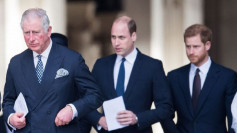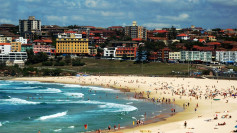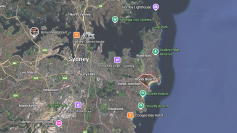Reports have emerged revealing North Korea's initiative in deploying thousands of troops to Russia, a development that has drawn significant attention from global intelligence and diplomatic circles. U.S. intelligence agencies, in a report cited by The New York Times, assert that the move was initiated by North Korean leader Kim Jong-un, with Russian President Vladimir Putin accepting the offer promptly. This deployment marks a significant step in Pyongyang's deepening alliance with Moscow amidst the ongoing conflict in Ukraine.
Western officials initially perceived the arrival of North Korean soldiers as evidence of Russia's desperation for reinforcements. However, new intelligence assessments suggest otherwise. According to U.S. officials, the deployment of North Korean troops was orchestrated by Pyongyang with the apparent intention of currying favor with Russia for future diplomatic and strategic benefits. "Kim seems to hope that Russia will repay the favor in the future," said officials familiar with the intelligence.
North Korea has sent approximately 12,000 troops, most of whom are stationed in Russia's Kursk region. These soldiers have reportedly been engaged in active combat against Ukrainian forces, with casualties mounting. South Korea's Joint Chiefs of Staff estimate that more than 1,100 North Korean troops have been killed or wounded, a figure consistent with other reports suggesting substantial losses in the Kursk area. Ukraine's intelligence places the toll even higher, with over 3,000 North Korean troops reportedly killed or injured.
White House National Security Spokesman John Kirby recently addressed the development, confirming that North Korean forces had transitioned from support roles to frontline combat. "We saw how these North Korean soldiers moved from the second lines... to the front line on the battlefield, designed to actively participate in hostilities," Kirby stated. He added that casualties among these forces were "not surprising."
North Korea's involvement extends beyond manpower. Pyongyang has supplied Russia with military equipment, including 240mm multiple rocket launchers and 170mm self-propelled howitzers. According to South Korea's JCS, North Korea is also preparing shipments of suicide drones, which have been widely used in the Ukraine conflict. The move underscores Pyongyang's focus on gaining combat experience and modernizing its conventional forces.
The partnership between North Korea and Russia is raising alarms in neighboring South Korea. Officials in Seoul warn that Pyongyang's growing military ties with Moscow could pose increased threats to regional security. South Korea has reported heightened activity along the Korean border, where thousands of North Korean troops have recently been seen installing electrified barriers and fortifications.
Tensions on the Korean Peninsula remain high, with North Korea continuing its provocative actions. Since May, Pyongyang has launched thousands of trash-laden balloons into South Korea, framing them as retaliation for anti-North Korean propaganda efforts. South Korea's acting President Han Duck-soo emphasized the need for vigilance, warning that North Korea might escalate provocations, including missile launches or nuclear tests.
International observers have expressed concern over North Korea's alignment with Russia and its potential implications for global security. Analysts warn that the collaboration could embolden Pyongyang to stage strategic provocations aimed at bolstering its bargaining position with the United States. U.S. Forces Korea commander Xavier T. Brunson reaffirmed Washington's commitment to South Korea, stating that joint exercises would ensure a robust defensive posture.






